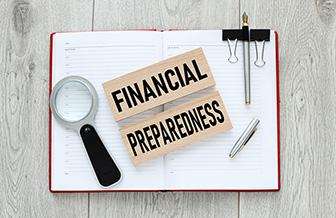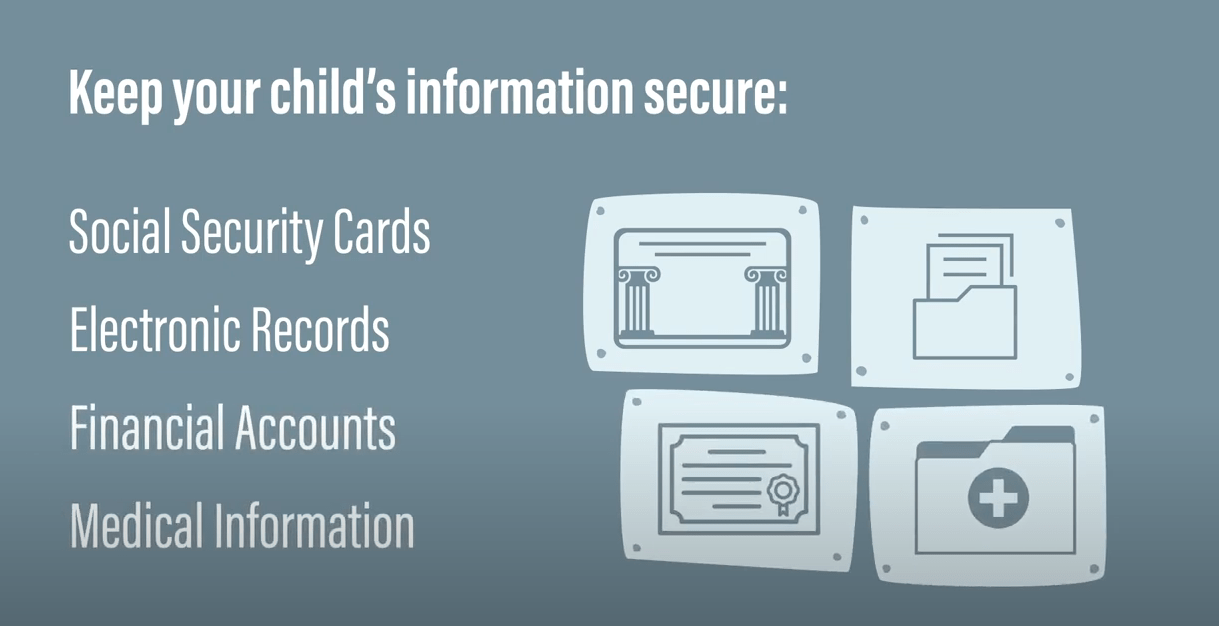5 Tips for Your First Credit Card
11 min read
Posted on Sep 08, 2023

Getting your hands on your very first credit card can be a thrilling experience. However, before you plan everything you want to buy, it’s important to understand how credit cards work, the types of credit cards available to you and how to avoid getting into credit card debt and establishing bad credit.
Understand the Different Types of Credit Cards
Let’s start with the credit card basics. When it comes to selecting your first credit card, it’s important to know there are several different types out there, each with their own set of potential pros and cons.
If you are someone who loves to travel, consider a travel rewards credit card. These credit cards often offer you bonus points or miles for booking travel fares through your bank or credit union’s credit card. Another type of credit card that may interest you is cash rewards, which earns you straight cash when using that card to make purchases. Own your own business? It may make sense for you to open a business credit card, which helps you earn points, or even cash back, when charging business activities.
1. Use Your Credit Card to Build Credit
If this is your first credit card, chances are that means you are starting with no or little credit. To begin building this credit up immediately, treat your credit card like it’s a debit card. In other words, every time you charge something you should understand that you are spending money and know that you have enough in your bank account to pay your bill at the end of the month. If you currently have no established credit, it may be wise to consider a secured credit card as your first choice. Secured credit cards (sometimes known as credit cards for bad credit), are backed by a cash deposit so that the cardholder can always make their payments. However, it is important to understand the fees and requirements associated with a secured credit card before
Keep in mind that the more you charge on your credit card each month, you may wind up hurting your credit score. When it comes to building your credit history, VantageScore recommends you consume no more than 30% of your available credit line. To learn what your current credit score is, use this calculator. You will be able to see how credit scores are calculated and even adjust specific areas to learn how you can achieve an excellent credit score. It’s always a good idea to check your score over time, to ensure it’s at a favorable level. You’ll also need good credit to get the best rates when buying a car or a home.
2. Take Advantage of Credit Card Rewards
Reward credit cards can give you cash back, travel rewards and more depending on your needs. If you’re a frequent explorer, you can earn free fly miles as you make purchases with a travel rewards card. If you’d prefer to stick to a card that accumulates additional cash into your account, then a cash back rewards credit card might be right for you.
Once you have selected your ideal rewards credit card, it’s important to become familiar with the rules of how to redeem rewards. For instance, in order to redeem points or cashback, you often need to spend a certain amount of money during an allotted period of time. As a first-time credit card user, it can become difficult to manage the logistics of how to earn your rewards, so it’s important you do your research with your particular rewards card to understand all its stipulations.
3. Avoid Credit Card Fees
Despite how commonplace having a credit card is, there is a lot of responsibility associated with having a credit card. When you apply for your first credit card, make sure to do your research and understand any fees that come along with it. For instance, many cards come attached with foreign transaction fees for when you pay for something overseas with your credit card. With some credit cards, this could even apply to purchases through online merchants based in other countries. It’s important to understand all the different transaction fees for your card. If you want to avoid paying this fee, you can either make sure to pay in cash or use a card that does not have this fee. Note that many travel rewards cards do not charge a fee if using your card overseas.
Another common credit card fee to be aware of is the over-limit fee. When you have a credit card, you don’t have free rein to spend as you please’ instead you have a specific spending limit each month. If you exceed that spending limit, you will get charged an over-the-limit fee. Make sure to familiarize yourself with these fees ahead of time so that you avoid late payment fees and a negative impact on your credit score. It’s also smart to set a reminder on your phone or make a note on your calendar for each upcoming bill date. This way, you will never miss a payment. Or, you can take advantage of online bill pay to automate your credit card payment. Just be sure to review your bill regularly to ensure all charges are correct.
4. Prevent Debt Accumulation
Credit cards can unfortunately be an easy way to accumulate personal debt. To prevent this from happening to you, make sure to always pay your credit card balance in full each month. We make this easy with FHB Online Banking. It’s also wise to have a plan for how you will pay off your purchases before you make them. That way, you can’t charge anything more significant than you can afford and you won’t get into debt later on.
Another tip to ensure you don’t pay for more than you can afford is to use cash or a debit card. If you find it’s becoming more challenging to pay back your monthly payments, it may be time to contact a financial advisor who can set you up with a budget and help you better manage your money. Should you find yourself in credit card debt, use this debt calculator to help come up with a plan to pay it off over time.
5. Choose Your Credit Card Wisely
Picking your first credit card is a very individual decision. Your credit card should reflect your needs so that you can get the most out of it. For instance, although credit cards provide great convenience to your life, if not handled responsibly, a credit card can lead to severe problems.
Once you have selected the right credit card for you, learn how the bank or credit union monitors your accounts for suspicious activity. This will give you the peace of mind when you are using your card. At First Hawaiian Bank, we provide fraud alerts to give you a notification when suspicious activity is found. Also, make sure that your passwords and PIN numbers aren’t easy to guess so you don’t become a victim of identity theft.
Now that you are familiar with First Hawaiian Bank’s first credit card tips, you can apply for your first credit card with confidence. View our cards or visit a branch today.
Was this helpful?
Thank you for the feedback








